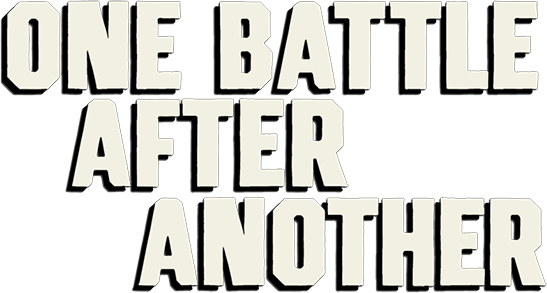By his second film, writer/director Paul Thomas Anderson had made a name for himself. Not only did he manage to land the likes of Gwyneth Paltrow, Samuel L. Jackson, and John C. Reilly for his first movie “Hard Eight,” but he decided to follow up a smaller scale gambling drama with a sprawling 1970s porn epic titled “Boogie Nights.” Since then, he’s made a name for himself with films that manage to capture his idiosyncrasies while also delivering a very specific portrait of human emotion and drama. Films like “Punch Drunk Love,” “Phantom Thread,” “Licorice Pizza,” “The Master,” and “There Will Be Blood” have captivated audiences across the board, with a few even being regarded as some of the greatest films of the 21st century.
Following up any stretch of films like that would be a seemingly monumental task, but with his biggest budget yet, Leonardo DiCaprio (“Once Upon a Time... In Hollywood,” “Titanic”), in the starring role, his first film set in the modern day, and his most politically poignant film yet, PTA has jumped headfirst into a tale of “One Battle After Another.”
Bob Ferguson, played by DiCaprio, is a member of a revolutionary far-left group known as the French 75. The group focuses on freeing immigration detention camps and bombing abandoned banks and politician’s offices, among other actions, most commonly facing off against Colonel. Steve Lockjaw, played by Sean Penn (“Mystic River,” “Milk”). After their DeFacto leader and Bob’s lover Perfidia Beverly Hills, played by Teyana Taylor (“The Book of Clarence,” “Straw”), becomes pregnant, she vanishes, leaving the organization scrambling and Bob with their daughter. Now sixteen years later, Bob is washed up and paranoid, smoking and drinking while trying to parent his daughter Willa, played by Chase Infiniti in her film debut (“Presumed Innocent (2024)”). He’s forced to snap into action though after Lockjaw reappears in his life looking for Bob and Willa, forcing the two to go on the run.
The film gets far more complex than that, and Anderson’s script, loosely adapted from Thomas Pynchon’s novel “Vineland,” keeps everything taught and wonderfully absurdist. Make no mistake, there is plenty of harrowing material here that will likely drive many away from the film. But Anderson handles it all deftly. After an extended prologue sequence, things kick off and never let up, mixing action genre sensibilities with an almost satirically serious view of modern America. It’s a delightfully funny and unexpected tale, but it never shortchanges any emotion or character. For example, Perfidia might disappear from the film after the prologue, but her presence is intertwined with the entire rest of the film. She hangs over the events like a ghost, and Taylor’s brief but exceptionally impactful performance meshes with Anderson’s script to create that lingering effect.
DiCaprio’s performance, meanwhile, feels like an aged mixture of a wannabe action hero and Jeff Bridges’s performance in “The Big Lebowski.” He’s consistently stumbling and getting turned around, but his unshakeable determination and love for his daughter make for an intensely compelling lead role. At no point is anything ever certain for him and even as he repeatedly falls on his face, literally and metaphorically, you never doubt that he has the ability or drive to save the day. It also helps that the person he’s trying to save is exceptionally compelling herself. In a film full of incredible performances, Chase Infiniti might very well be the film’s greatest aspect. She’s completely magnetic, zeroing in on the complexity of this role, an already fiercely independent child being thrown headfirst into a world of actual danger, and becomes impossible to look away from. Numerous moments speak magnitudes without her even talking thanks to the physicality of her performance. One scene towards the end of the film showcases her silent physicality book ended with moments of loud ferociousness to borderline perfect results.
Penn meanwhile is an absolute menace. The most despicable kind of villain, one so sure of his own goodness, is played to terrifying effectiveness here. He never saps Lockjaw of any of his own absurdity though, delivering a performance for the kind of man so assured in his own self-confidence that it spills back around to being completely silly in numerous aspects. Like this film itself though, these moments of silliness never cheat you out of the pure evil he’s able to encapsulate throughout the film. While undoubtedly in smaller roles, Regina Hall (“Scary Movie,” “Support the Girls”) and Benecio Del Toro (“Fear and Loathing in Las Vegas,” “Sicario”) fill out this world with characters that make major impacts within even their first few moments of screen time. Hall has a haunted look to her character Deandra and manages to be a perfect microcosm of the “old way” of revolting. Del Toro is arguably more Zen than DiCaprio’s Bob, providing yet another interpretation of revolution in the modern day. He’s an instant scene-stealer, and his role would be a standout in any other film not already filled with standout performances.
It would be one thing if PTA and this film wanted to tell a story like this, as there have been plenty of big budget politically charged films in recent memory. But what sets this tale apart is not only the hope at the core of it, but the attitudes it has towards the older and younger generation of revolutionaries. He doesn’t hold the older folks up as infallible nor is the younger generation shown as incompetent or hot headed. It creates a more complex tale that refuses to paint either side of the resistance as the “correct” way of doing things and allows the performances to benefit from the additional dimensionality.
Completely separate from the film’s creative elements, the technical merits on display are absolutely exceptional. Jonny Greenwood’s (“There Will Be Blood,” “The Power of the Dog”) musical score is fantastic, plain and simple. It flows and chills each scene, moving from an already chaotic pace and vibe to something borderline cacophonous by the end of things. Likewise, Michael Bauman’s (“Licorice Pizza”) cinematography plays with numerous viewpoints and angles, flying across waves of long sun-soaked asphalt roads and nights lit with fireworks and the hazy smoke of tear gas. It’s a gorgeous film and ridiculously easy to become fully enveloped in as things exploded outward for Bob, Willa, and the rest.
Making a film with this kind of material, in this kind of climate, may just be an unwinnable task. “One Battle After Another” manages to be an exceptionally tight film in its focus without ever becoming oppressive. Anderson keeps things hopeful as well as just absurd enough to remind you that, even in times like this, things will eventually be toppled. The future generations will keep working just as much as the previous have to keep moving forward. By wrapping that narrative and idea in a film so completely thrilling and entertaining as this, he’s made what just might be the film of the moment, one that so perfectly encapsulates what we’re living through right now in feeling and action. It might also be the best movie of the year. 5/5
.png)

.png)


